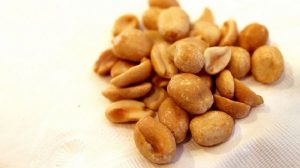Enter your address to receive notifications about new posts to your email.
Articles tagged Agriculture
(19 results)
-
For this human pathogen, agriculture may be a source of antifungal resistance
Aspergillus fumigatus isolated from clinical settings is resistant to agricultural fungicides. Infections have long been a deadly problem for hospital patients. Though modern medicine has an impressive array of antimicrobial drugs at its disposal, pathogens continue to evolve resistance, creating ever more dangerous infections as the microbial “arms race” escalates. Overprescribing of antibiotics is one…
-
Mapping complex traits in hemp
Researchers identified dozens of quantitative trait loci controlling important traits in Cannabis sativa. In 2014, United States federal law changed to allow scientific research on Cannabis sativa in states with regulated hemp programs. This legal shift opened the door to research that had previously been slow and difficult due to regulatory hurdles and funding challenges. A new study published…
-
Strawberry detectives retrace family roots
Geneticists dig up the dirt on 300 years of succulence. When Steve Knapp started his new job at the University of California, Davis, he plunged into a forensic mystery that would take years to unravel. He wasn’t hunting a criminal or identifying a missing person, but the challenge before him was just as formidable: reconstructing…
-
What inspired Mendel?
Newly uncovered newspaper articles shed light on Mendel’s motivations. Gregor Mendel is considered by many to be the father of genetics. Yet, because his work was not fully appreciated in its time, little is known about Mendel himself. Primary sources, such as letters he wrote, are rare; only a few dozen pieces of his correspondence…
-
Poisoned peanuts: insights into aflatoxin susceptibility
Expression analysis provides clues about what makes some peanut strains more susceptible to fungal toxin contamination. In 1960, 100,000 turkeys across hundreds of English poultry farms died from aflatoxin contamination in the peanut meal in their feed. Aflatoxin is a potent carcinogen produced by fungi of the genus Aspergillus, which can grow on peanuts. Although…
-
Tales told by ancient human DNA
Archaeologists have long known how to extract millennia-old stories from a single tooth buried in an ancient ruin—and now geneticists have the tools to join them. Advances made in the last several years have enabled researchers to sequence tiny amounts of DNA preserved in very old specimens, such as the material inside a tooth from…
-
To fight malnutrition, geneticists are developing more nutritious corn
Corn feeds millions of people, and its low cost makes it particularly important in developing countries. However, it can’t be relied on as the sole source of protein for either humans or livestock because—like most cereals—corn is low in certain essential amino acids. In the 1960s, a type of corn was discovered with boosted levels of…
-
Pesticide 2.0: Spray-on gene silencers
Guest post contributed by members of the GSA Early Career Scientist Communications and Outreach Subcommittee. In their bitter war with crop pests, farmers have two big guns: chemical pesticides and genetic engineering. But excitement has been building in the farming community for a new weapon that is unlike anything they’ve tried before, a pesticide 2.0.…
-
Gene flow from crops into weeds depends on genome location
Even though domestic plants usually appear radically different from their wild relatives, they are often still able to interbreed. For transgenic crops carrying traits like herbicide resistance, this flexibility could pose a problem if they were to pollinate weedy relatives nearby. In the July issue of GENETICS, Adamczyk-Chauvat et al. examine the extent to which…
-
Lineage specific retrotransposons shaped the genome evolution of domesticated rice
Rice is one of the most important food crops on earth. Like many other plants, the genome of this critical global species is dominated by transposable elements—selfish genes that multiply themselves to the detriment of their host. In the June issue of G3, Zhang and Gao analyze the genomic long terminal repeat (LTR) retrotransposon content…
-
MPP People: Geoffrey Morris
Multiparental populations (MPPs) have brought a new era in mapping complex traits, as well as new analytical challenges. To face these challenges and encourage innovation, the GSA journals launched the ongoing Multiparental Populations series in 2014. This month’s issues of GENETICS and G3 feature a bumper 16 MPP articles, timed to celebrate a new easy-to-use…












